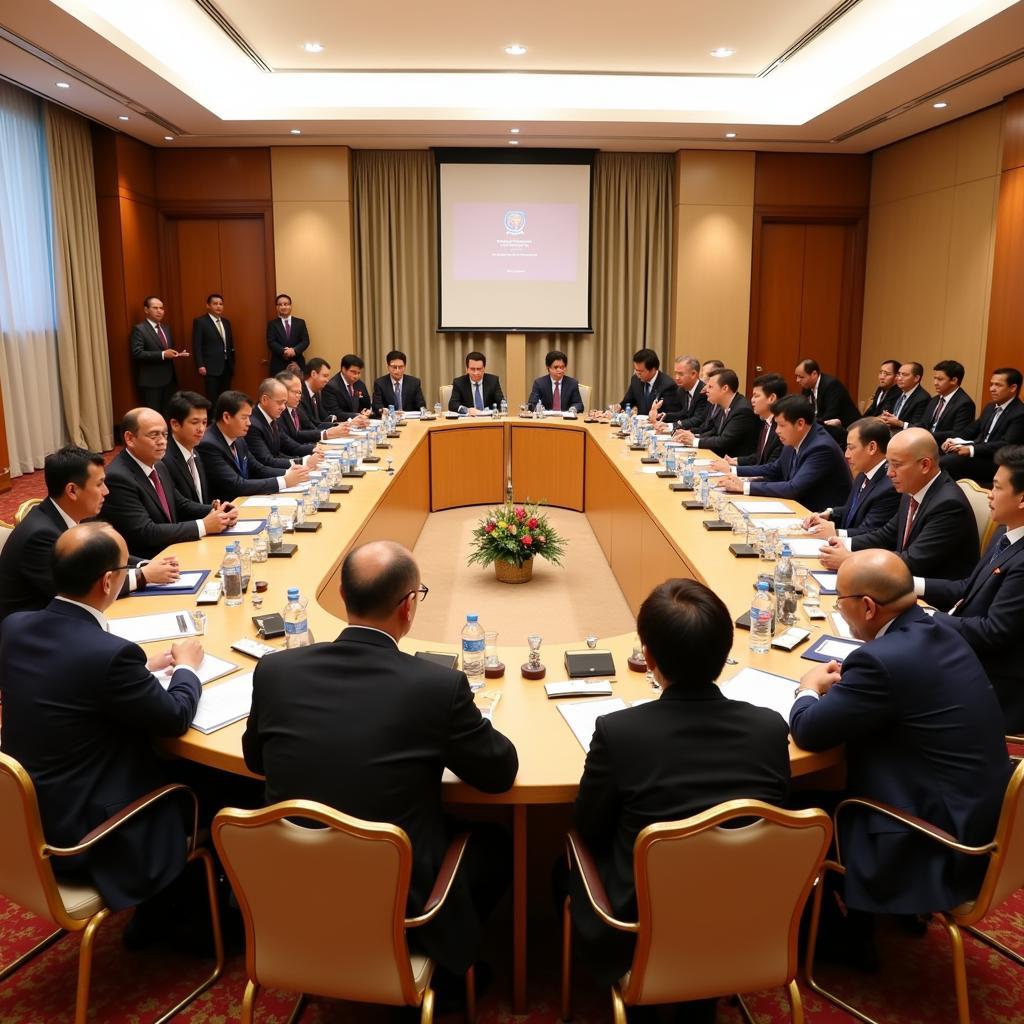Malaysia, a vibrant nation in Southeast Asia, has experienced significant economic growth and development since its independence. As a founding member of the Association of Southeast Asian Nations (ASEAN), Malaysia has reaped substantial benefits from its involvement in the regional bloc. This article will delve into the multifaceted advantages that ASEAN brings to Malaysia, solidifying its position as an economic powerhouse in the region.
Economic Integration and Trade
One of the most significant benefits of ASEAN membership for Malaysia is increased economic integration and trade opportunities. The ASEAN Free Trade Area (AFTA) has drastically reduced tariffs and trade barriers between member states, fostering a more conducive environment for businesses to thrive. This has led to a surge in intra-ASEAN trade, with Malaysia being a major beneficiary.
Access to a Larger Market
AFTA provides Malaysian businesses with preferential access to a market of over 650 million people across the ten ASEAN member states. This expanded market presents significant opportunities for Malaysian exporters to expand their reach and tap into new consumer bases. Industries such as electronics, palm oil, and manufactured goods have witnessed substantial growth due to increased demand from neighboring countries.
Foreign Direct Investment (FDI)
ASEAN’s collective economic growth and stability have made it an attractive destination for foreign direct investment (FDI). As a key member of ASEAN, Malaysia has witnessed a steady inflow of FDI, contributing to job creation, technological advancements, and overall economic development.
Enhanced Connectivity and Infrastructure Development
ASEAN plays a crucial role in promoting regional connectivity and infrastructure development, which directly benefits Malaysia’s economic progress.
Transport and Logistics
ASEAN initiatives such as the Master Plan on ASEAN Connectivity (MPAC) aim to improve transport and logistics networks within the region. This includes developing cross-border infrastructure projects, streamlining customs procedures, and enhancing air and sea connectivity. For Malaysia, these improvements translate into reduced transportation costs, faster delivery times, and increased competitiveness in the global market.
Digital Connectivity
In today’s digital age, seamless internet access and digital infrastructure are paramount to economic growth. ASEAN recognizes this and has been actively promoting digital connectivity initiatives. Malaysia, with its robust ICT infrastructure, has greatly benefited from these efforts. The country is now a regional hub for e-commerce and digital services, attracting investments and creating new job opportunities in the digital economy.
Tourism and Cultural Exchange
Beyond economic benefits, ASEAN membership has fostered closer ties between people, promoting tourism and cultural exchange within the region.
Increased Tourist Arrivals
ASEAN’s collective marketing efforts and simplified visa policies have contributed to a significant increase in tourist arrivals from within the region. Malaysia, with its diverse cultural heritage, stunning natural landscapes, and world-class tourism infrastructure, has become a top destination for ASEAN tourists.
Cultural Exchange and Understanding
ASEAN actively promotes cultural exchange programs, educational collaborations, and people-to-people interactions. This fosters greater understanding and appreciation of the different cultures within ASEAN, including Malaysia’s rich and diverse heritage.
Conclusion
ASEAN membership has undoubtedly been a boon for Malaysia. From enhanced economic integration and trade to improved connectivity and a thriving tourism industry, the benefits are multifaceted and far-reaching. As ASEAN continues to grow in prominence on the global stage, Malaysia stands to reap even greater rewards from its active participation in the regional bloc, solidifying its position as a key economic player in Southeast Asia.
FAQ
1. What is AFTA and how does it benefit Malaysia?
AFTA stands for ASEAN Free Trade Area. It is an agreement among ASEAN member states to eliminate tariffs and reduce trade barriers, promoting free trade within the region. For Malaysia, AFTA provides preferential access to a larger market, boosting exports and economic growth.
2. How does ASEAN promote connectivity in the region?
ASEAN initiatives like the MPAC focus on improving transport infrastructure, streamlining customs procedures, and enhancing air and sea connectivity. These efforts benefit Malaysia by reducing transportation costs, improving logistics, and enhancing its competitiveness in the global market.
3. What is Malaysia’s role in the ASEAN digital economy?
Malaysia is a regional leader in the digital economy. Its robust ICT infrastructure and government support for digital initiatives have positioned it as a hub for e-commerce, fintech, and digital services within ASEAN.
4. How has ASEAN membership impacted tourism in Malaysia?
ASEAN’s joint marketing campaigns and relaxed visa policies have significantly boosted tourist arrivals to Malaysia. The country’s diverse cultural attractions and natural beauty have made it a popular destination for travelers within the region.
5. How can I learn more about ASEAN and its impact on Malaysia?
You can find a wealth of information on ASEAN on their official website, https://asean.org/. For specific insights into Malaysia’s involvement in ASEAN, you can visit the Ministry of Foreign Affairs website: https://www.kln.gov.my/.
For further assistance or inquiries, please contact us at:
Phone Number: 0369020373
Email: aseanmediadirectory@gmail.com
Address: Thon Ngoc Lien, Hiep Hoa, Bac Giang, Vietnam
We are available 24/7 to assist you.


